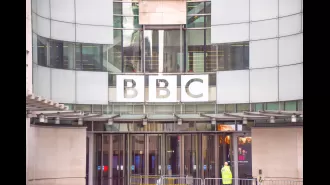Sri Lankans are making a choice.
Sri Lanka's presidential election, set for next month, will determine the fate of unelected president Ranil Wickremesinghe and the country's recovery from economic turmoil.
August 20th 2024.

In just a few weeks, Sri Lanka will hold its highly anticipated presidential election. This marks the first election since the country was thrown into turmoil due to an economic crisis two years ago. The outcome of this election will not only determine the future of the country's economy, but also the fate of current unelected president, Ranil Wickremesinghe.
Wickremesinghe, a member of the United National Party, assumed the presidency after former president Gotabaya Rajapaksa was ousted in a political upheaval in 2022. However, this time around, he faces a record-breaking number of challengers - 39 to be exact. Among them, the most popular is Sajith Premadasa, the leader of the opposition party.
Whoever takes office after the vote on September 21st will have a daunting list of tasks to tackle. Not only will they have to focus on reviving the country's struggling economy and negotiating a bailout with the International Monetary Fund, but they will also have to navigate the tense political climate and the interests of major global powers, such as China, India, and the US, all vying for influence in the Indian Ocean region.
The 38-year-old Namal Rajapaksa, representing the Sri Lanka Podujana Peramuna party, may not have the best chances in this election due to his family's involvement in the economic crisis. Namal is the nephew of Gotabaya and the son of former president Mahinda Rajapaksa, both of whom were found guilty by the Supreme Court of economic mismanagement.
According to a recent survey, Premadasa, of the Samagi Jana Balawegaya party, has the support of 43% of voters, with Anura Kumara Dissanayake of the National People's Power party coming in second with 30% and Wickremesinghe with 20%. Analysts believe that Wickremesinghe's association with the Rajapaksa family, who supported him during the 2022 uprising, may work against him in this election.
Since taking office, Wickremesinghe has worked to stabilize the economy and sought aid from the IMF. While the economy has shown signs of improvement, the reforms have also had a negative impact on certain segments of society, causing social discontent. However, his efforts to steer the country out of economic collapse may work in his favor with voters.
On the other hand, Wickremesinghe's opponents argue that he lacks support outside of urban areas and that his economic reforms have burdened the poor and middle classes. This has led to widespread dissatisfaction and could potentially hurt his chances in the election.
During his time in office, inflation has dropped from a staggering 70% to a more manageable 5%. Interest rates have also decreased, the value of the Sri Lankan rupee has rebounded, and foreign reserves have increased. The upcoming election is seen as a referendum on Wickremesinghe's handling of the economy, which has shown improvements but has not been felt by all citizens.
Despite the desire for change among Sri Lankans, some are still hopeful for Wickremesinghe's leadership, as he is credited with bringing the country back from the brink of economic collapse. As the election draws near, both sides are promising to fight against corruption, and only time will tell who will come out victorious and lead the country towards a brighter future.
Wickremesinghe, a member of the United National Party, assumed the presidency after former president Gotabaya Rajapaksa was ousted in a political upheaval in 2022. However, this time around, he faces a record-breaking number of challengers - 39 to be exact. Among them, the most popular is Sajith Premadasa, the leader of the opposition party.
Whoever takes office after the vote on September 21st will have a daunting list of tasks to tackle. Not only will they have to focus on reviving the country's struggling economy and negotiating a bailout with the International Monetary Fund, but they will also have to navigate the tense political climate and the interests of major global powers, such as China, India, and the US, all vying for influence in the Indian Ocean region.
The 38-year-old Namal Rajapaksa, representing the Sri Lanka Podujana Peramuna party, may not have the best chances in this election due to his family's involvement in the economic crisis. Namal is the nephew of Gotabaya and the son of former president Mahinda Rajapaksa, both of whom were found guilty by the Supreme Court of economic mismanagement.
According to a recent survey, Premadasa, of the Samagi Jana Balawegaya party, has the support of 43% of voters, with Anura Kumara Dissanayake of the National People's Power party coming in second with 30% and Wickremesinghe with 20%. Analysts believe that Wickremesinghe's association with the Rajapaksa family, who supported him during the 2022 uprising, may work against him in this election.
Since taking office, Wickremesinghe has worked to stabilize the economy and sought aid from the IMF. While the economy has shown signs of improvement, the reforms have also had a negative impact on certain segments of society, causing social discontent. However, his efforts to steer the country out of economic collapse may work in his favor with voters.
On the other hand, Wickremesinghe's opponents argue that he lacks support outside of urban areas and that his economic reforms have burdened the poor and middle classes. This has led to widespread dissatisfaction and could potentially hurt his chances in the election.
During his time in office, inflation has dropped from a staggering 70% to a more manageable 5%. Interest rates have also decreased, the value of the Sri Lankan rupee has rebounded, and foreign reserves have increased. The upcoming election is seen as a referendum on Wickremesinghe's handling of the economy, which has shown improvements but has not been felt by all citizens.
Despite the desire for change among Sri Lankans, some are still hopeful for Wickremesinghe's leadership, as he is credited with bringing the country back from the brink of economic collapse. As the election draws near, both sides are promising to fight against corruption, and only time will tell who will come out victorious and lead the country towards a brighter future.
[This article has been trending online recently and has been generated with AI. Your feed is customized.]
[Generative AI is experimental.]
0
0
Submit Comment





